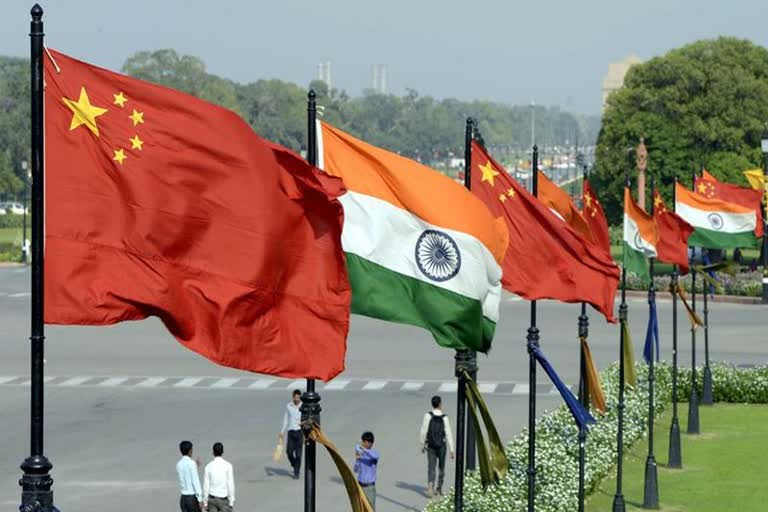New Delhi: From banning several dozen Chinese apps to cancelling existing contracts with Chinese vendors, India is now eyeing to take measures to prevent trade partners mainly in Southeast Asia from re-routing Chinese goods to the country with little added value, amid the strained ties with China.
Such steps undertaken by India have rendered a modest decoupling of India's economy from Chinese influence.
However, there have been apprehensions as to whether or not India can completely block off economic ties with China. Most Experts concur that decoupling economic relations with China will not be easy for several reasons.
Speaking to ETV Bharat, economist Dr NR Bhanumurthy said, "Preventing trade partners mainly in Southeast Asia from re-routing Chinese goods is going to be a huge task as I am not sure if India has the capability or technology to identify the source of production of goods even if it is importing from other countries in South Asia or Southeast Asia. China has been part of a huge global value chain, the presence of China is not limited to Southeast Asia alone."
"Given the geopolitical issues, it would be a difficult proposition to do business with China but in the long run, it is important for India to do business with China especially China and India being two large countries in terms of population. Any business propositions would not suggest for decoupling the trade between the countries," he stated.
"For the sustainability of any new business, India and China need to continue trade. In my view, one cannot escape doing trade with China," he added.
Read: Govt puts import restrictions on colour television
"Southeast Asian countries are very important for India and it has largely ignored these nations. Although we have signed the Free Trade Agreement (FTA) with certain restrictions, now India is planning to reconsider the decision because it is apprehensive that many products could be re-routed through Southeast Asia. It will be impossible for India to track every product," pointed out Rajan Kumar, Professor at School of International Studies, JNU.
"Secondly, China may also invest in southeast Asian companies that might have Chinese investments already. So based on that condition, it would be difficult for India to figure out. Countries like Vietnam, Philippines, Indonesia, Malaysia are important for India as the country shares strong trade ties with these countries as good as China," he added.
The government is planning to raise quality standards of imports, impose quantity restrictions, mandate stringent disclosure norms and initiate more frequent checks at ports of entry for goods coming from many Asian countries. A lot of Asian partners have become a place only for Chinese goods to be routed.
Recently, India's trade ministry issued a notice to restrict inbound shipments of TVs by requiring importers to get a special license.
Bhanumurthy explained that it is going to be tough but instead of doing that, India needs to improve competitiveness and productivity in the manufacturing sectors as that would automatically restrict India importing commodities from China or indirectly from other countries.
Read: India must warn China to stop going beyond limits: Experts
"Such approach by India as of now, might seem to be a good policy especially when there is tension in the geopolitics of the countries but I don't think it is a sustainable proposition," he added.
He further reiterated that if India is imposing import restrictions on China, there should be some other alternatives for India to consume the goods. Hence, there is a need to produce domestically or import from some other countries.
This would complete the revamping of the trade ties not only with China but with other countries and at the same time will boost domestic production processes. However, the adjustment is going to be a costly affair for India, the reason being that the Chinese have been very competitive.
China is India's second-largest trading partner, with trade worth $87 billion in the fiscal year ending March 2019, and a trade deficit of $53.57 billion in China's favour, the widest India has with any country.
Read: Trade dependency on China: India may not be able to boycott Chinese products
According to Professor Rajan Kumar, India cannot completely cut off ties with China for several reasons. For many of the commodities that are imported from China, alternatives are not easily available as it is difficult to find substitutes in other markets. Similarly, there are other raw materials that India imports from China and re-exports to other countries which benefits India economically.
China has compelled India to retaliate after the clashes in Galwan valley and so far, India has countered China via economic means even as anger against China continues to surge all across the globe.
Moreover, analysts are also of the view that recent tensions between the two countries could potentially push India to establish closer ties with the United States and countries like Japan, Vietnam, Australia.



